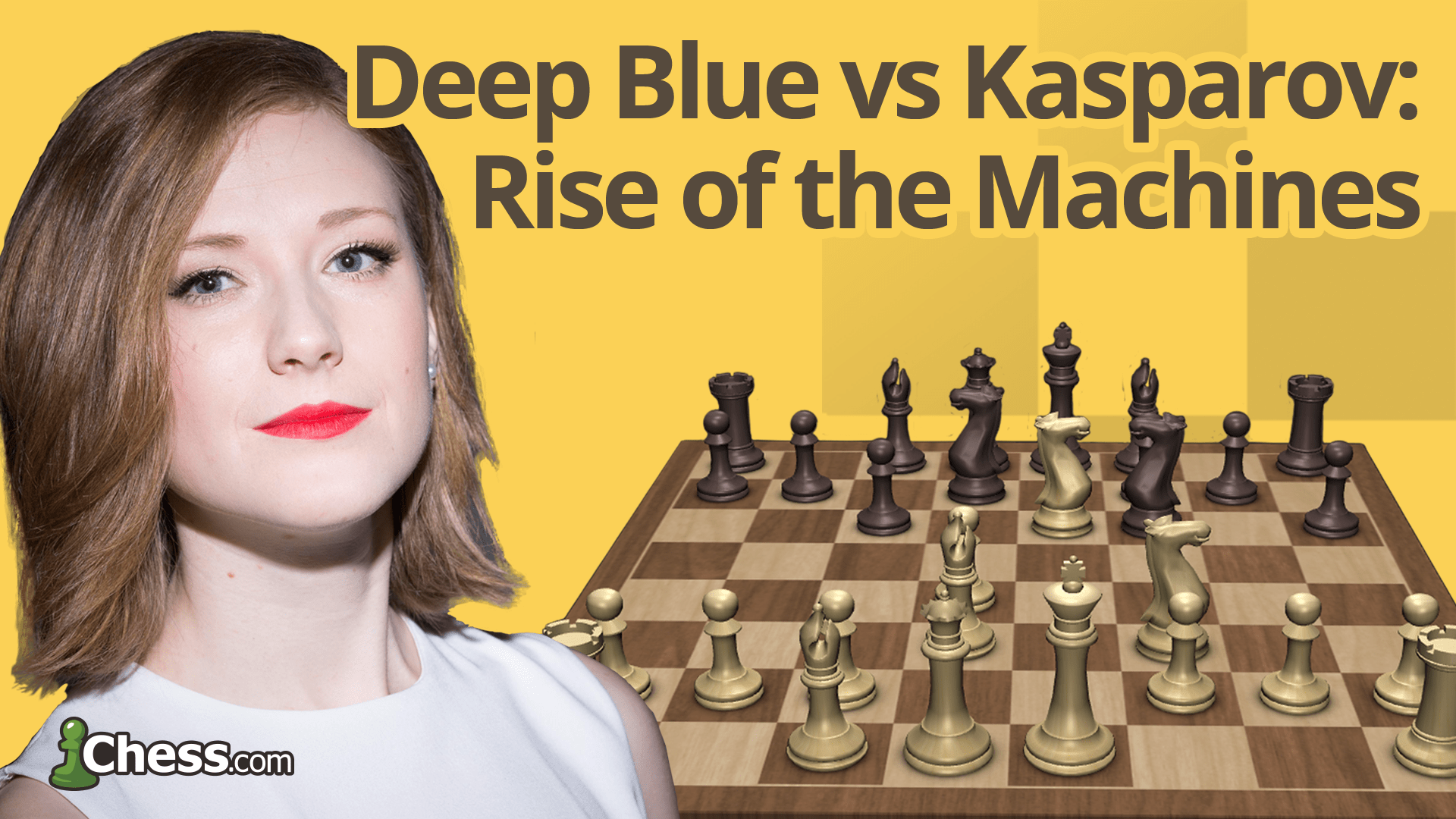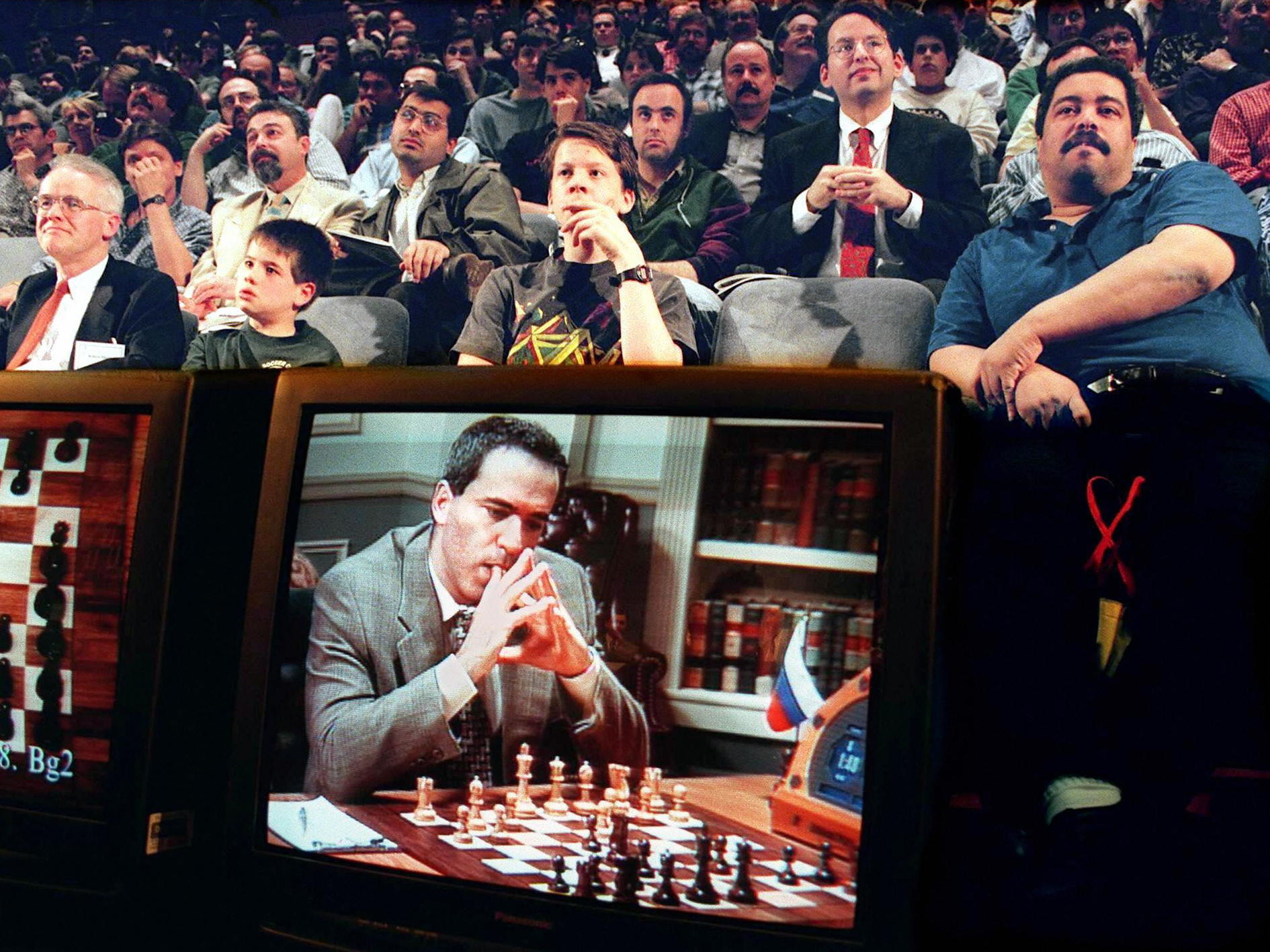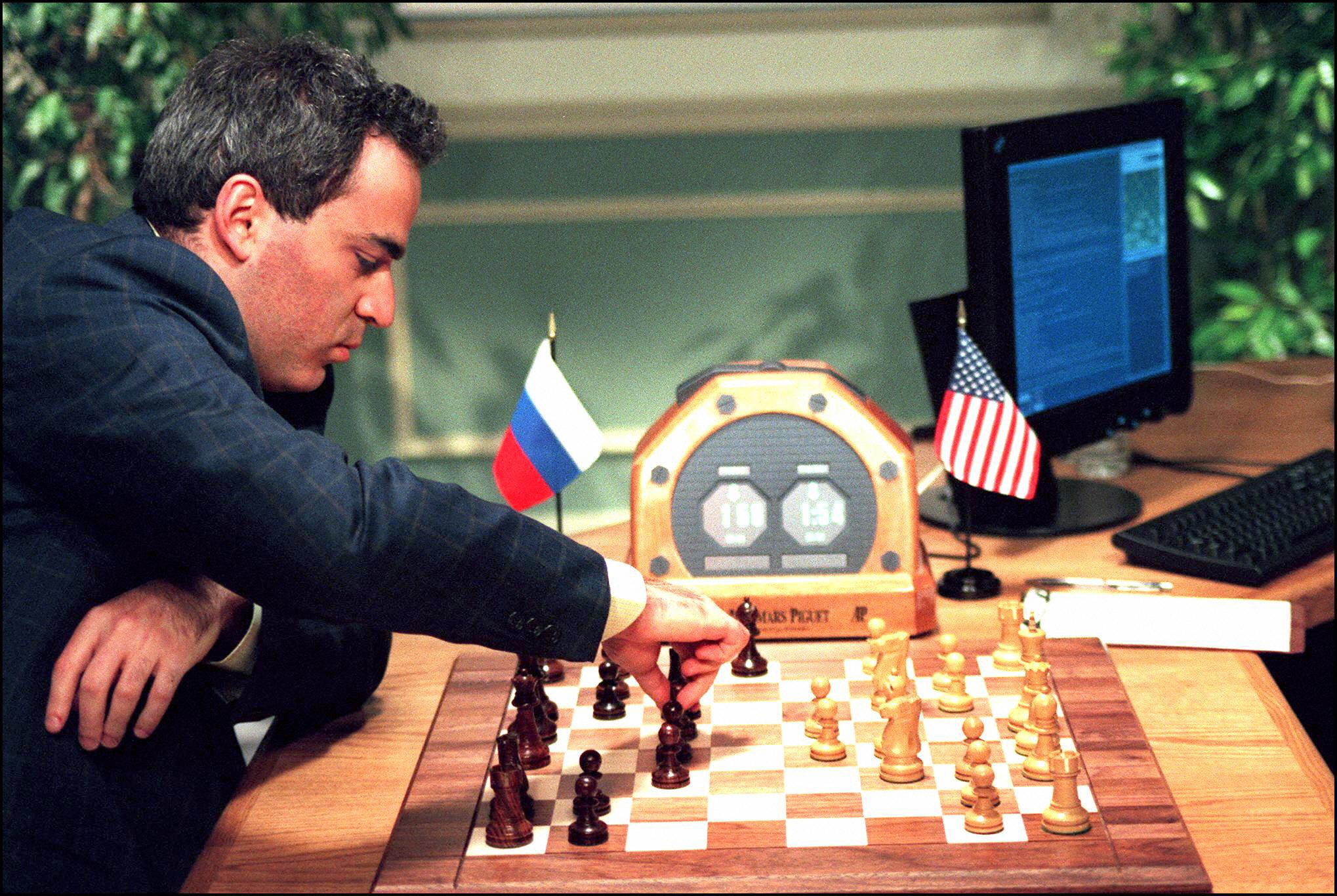

Review each move on a graphical chess board: To return, use the Back button on your browser. See a picture and biography of Garry Kasparov.Įditor's Note: Some of the above links will take you out of The Post's Web site.Read answers to frequently asked questions about Deep Blue.In honor of Deep Blue's victory, Yahoo has commissioned it to write its "Picks of the Week" page. In Game 1, Deep Blue's aggressive playing style left little room for error.Style writer Joel Achenbach argues Deep Blue isn't that smart.Read The Post's editorial about Kasparov's Game 1 defeat.The majority of you incorrectly chose Kasparov! Oh well, better luck next game.

Over the past week, we asked you to bet on who would win the match: human or computer. Then click your browser's "Back" button twice and enter the discussion.)

Is it possible for computers to think? Join a discussion on artificial intelligence. If we were Kasparov we would get on the waiting list for a microchip implant pretty damned : Deep Blue Defeats Kasparov in Game 2 This week’s meeting of the American Association for the Advancement of Science was given an awesome list of human parts that can be created by “tissue engineers” to replace anything from a pancreas to blood vessels. If the human race wants to fight back it may have to play Deep Blue at its own game: science. He argued that if a concealed computer was so adept at answering questions that from its responses alone you were unable to tell it apart from a human, that machine could be called “intelligent”.Įven if Kasparov does fight back it is only a matter of time before an unbeatable computer is devised. Deep Blue is now within sight of passing the test laid down by Alan Turing, the father of artificial intelligence. The sort of shortcut a grand master takes – instinctively avoiding irrelevant moves – a computer can do by being told not to explore avenues to which it has assigned low values. What Deep Blue is saying this week is that “intuition” is programmable: merely a question of more megabytes. Kasparov argues that though the latest machines can calculate billions of moves, they lack imagination. This marks a milestone in the progress of artificial intelligence.
#Deep blue chess games full#
Kasparov won the second game but the fact is the world’s greatest chess player has been beaten for the first time in a full -length game by the desiccated calculations of a sliver of silicon. We won’t hear that again because this week a hugely more powerful IBM Deep Blue beat Kasparov in the opening game of a challenge match coinciding with the 50th anniversary of the first electronic computer. When Garry Kasparov beat IBM’s chess computer in 1989 he told the programmers to “teach it to resign earlier”. Editorial: Mr Kasparov and the deep blues – the world’s greatest living chess player is beaten by IBM He left the Pennsylvania Convention Centre without speaking to reporters, and chess colleagues described him as devastated. He said at some points during the game, Deep Blue was analysing more than 100 million chess positions a second.Īt the end, Mr Kasparov reached across the board to shake hands with Feng-Hsiung Hsu, the IBM scientist who moved the pieces for Deep Blue.
#Deep blue chess games software#
“We’ve got one of the greatest concentrations of computing power ever focused on a single problem working here,” said Joseph Hoane, who has worked on Deep Blue software for more than six years.


 0 kommentar(er)
0 kommentar(er)
